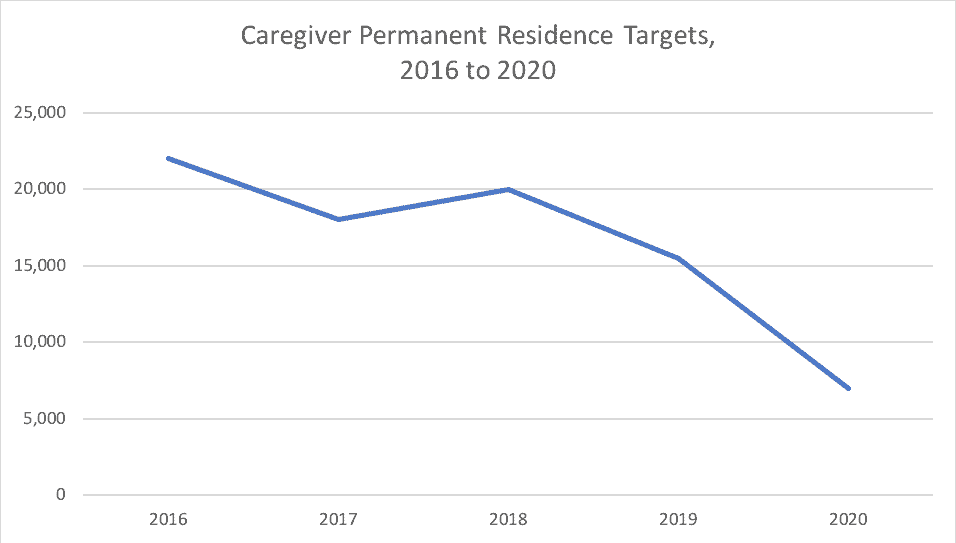 Feb 19, 2018 – Federal Immigration Minister Ahmed Hussen has quashed rumours about the future of the caregiver strand of Canada’s Temporary Foreign Worker Program by saying there will always be a permanent residence pathway under the Liberals.
Feb 19, 2018 – Federal Immigration Minister Ahmed Hussen has quashed rumours about the future of the caregiver strand of Canada’s Temporary Foreign Worker Program by saying there will always be a permanent residence pathway under the Liberals.
The Immigration, Refugees and Citizenship Canada chief was reacting following a warning the current five-year pilot program would end in 2019 after starting in 2014 under the previous Conservative government.
As a result, caregivers were told that if they had not accrued the required two years of Canadians work experience by that deadline, they would not be eligible under the current program.
Now Hussen has intervened to suggest the pilot will either be extended beyond the deadline, or a new program will be put in place, maintain the permanent residence pathway.
Read More
Canada Foreign Caregivers in Limbo Over Permanent Residence Pathway Deadline
Some Families Hiring Foreign Caregivers Exempt From $1,000 LMIA Fee
Canada Targets Live-In Caregiver Program Application Backlog
“Let us be clear,” Hussen said. “There is and always will be a pathway to permanent residency for caregivers under our government.
“Our government will not be shutting down opportunities for caregivers to become permanent residents.”
He added: “We recognize the role caregivers have played is an important one in supporting our loved ones and helping grow Canada’s economy.
“We are thankful for all that caregivers have done and we understand the difficulty they have had to endure with the long processing times.”
IRCC Update
Hussen also directly referenced the IRCC update that caused the confusion, saying that although the current program was under review, there was no chance of it being abolished altogether.
“Recently an update was posted on the Immigration, Refugees and Citizenship Canada website regarding the Caring for Children and Caring for People with High Medical Needs pilot projects which were introduced in 2014 and set to expire in 2019,” Hussen added.
“The website update was about informing the public of the upcoming expiry of these two pilot projects. However, as with all pilot projects, we undertake a review process in order to decide whether or not to extend pilot projects.
“This is currently happening with respect to the Caring for Children and Caring for People with High Medical Needs pilot projects. I’d also like to be clear that the review of the pilots is in no way about the end to a pathway to permanent residency for caregivers.”
Hussen also took issue with the figures quoted in recent articles concerning the caregiver program, point out that 27,000 caregivers were given permanent residence in 2015 and more than 18,000 in 2016.
Many caregivers who entered Canada under the old system are still waiting for their permanent residence applications to be processed.
Hussen has made three key commitments aimed at eliminating a backlog allowed to grow by the previous Conservative government.
Those commitments are:
- Process 80 per cent of permanent residence applications on the system as of October 1, 2017 by the end of 2018.
- 12-month processing time for 80 per cent of new and complete permanent residence applications received on or after October 1, 2017
- Admit high numbers of candidates here under the Live-In Caregiver Program as permanent residents until all cases are processed.
The backlog, which peaked in May 2014, is controversial because it effectively keeps caregivers who are in Canada away from their families until their permanent residence applications have been processed.
The government recently announced it is to make some families hiring caregivers exempt from paying the $1,000 Labour Market Impact Assessment processing fee. Recently published regulations mean families who earn a total of less than $150,000 per year will no longer need to pay the annual fee.
That Ottawa has made such a change to the program despite it being under review is an indication it has a future in some form.
However, the federal government immigration levels plan allocation for caregiver permanent residence shows that by 2020, Ottawa expects to admit only a quarter of the caregivers it admitted in 2016.
It should be noted that the reduction in numbers is linked to the clearing of the backlog of permanent residence applications under the pre-2014 caregiver program.

Interested employers: Kindly contact us here to receive further information.
Interested candidates: Find out whether you qualify to Canada by completing our free on-line evaluation. We will provide you with our evaluation within 1-2 business days.
Read more news about Canada Immigration by clicking here.


